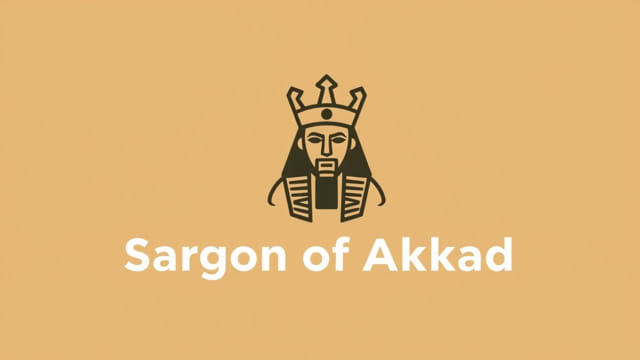Sargon of Akkad is one of the most fascinating figures from ancient Mesopotamian history. As the founder of the Akkadian Empire, he is credited with creating the first known empire in recorded human history. His life, achievements, and mysterious origins have captured the interest of historians and scholars for centuries. Despite ruling over four thousand years ago, Sargon’s legacy continues to influence our understanding of ancient governance, military conquest, and imperial organization. Let’s explore some fun and intriguing facts about this legendary ruler from the ancient world.
The Mysterious Birth of Sargon
Legendary Origins
Sargon’s birth story is as legendary as any myth. According to ancient texts, he was born to a humble family and placed in a reed basket which was set adrift on the river. This story strongly resembles that of Moses in the Bible, showing how themes of humble beginnings and divine favor were common in ancient leadership myths.
Adopted by a Gardener
After being rescued from the river, Sargon was raised by Akki, a royal gardener. This upbringing gave him access to the royal court and exposed him to the intricacies of palace life, eventually positioning him for his remarkable rise to power.
Founder of the Akkadian Empire
Unification of Sumer and Akkad
One of Sargon’s most important accomplishments was uniting the city-states of Sumer with the Semitic-speaking people of Akkad. Before his reign, these regions were politically fragmented. By creating one central authority, Sargon laid the foundations for a unified Mesopotamian state.
The World’s First Empire
Sargon is widely regarded as the founder of the world’s first empire. His military campaigns expanded his control over a vast region, from the Persian Gulf in the south to the Mediterranean Sea in the northwest. This enormous territory was governed under a centralized administration with Sargon as the supreme ruler.
Sargon’s Military Genius
Professional Standing Army
Sargon is credited with establishing one of the first professional standing armies. This allowed him to swiftly respond to rebellions and foreign threats. His military innovations helped maintain stability across his vast empire.
Conqueror of 34 Cities
Historical inscriptions claim that Sargon conquered 34 cities during his rule. His most famous campaign took him as far as the Levant, where he claimed victory over regions that now make up modern-day Syria and Lebanon.
Innovations in Governance
Centralized Administration
To manage his vast empire, Sargon implemented a centralized system of governance. He appointed loyal governors to rule over different city-states and maintained communication through an early form of bureaucracy. This organizational structure served as a model for later empires in the ancient world.
Use of Akkadian Language
Sargon promoted the Akkadian language as a unifying tool across his empire. It became the administrative and cultural language of Mesopotamia, eventually replacing Sumerian in many official contexts. This helped integrate the various ethnic and linguistic groups within his domain.
Religious and Cultural Legacy
Divine Kingship
Sargon claimed divine right to rule, a concept that was revolutionary for his time. He often referred to himself as the king of the four quarters of the world, suggesting that his rule was divinely sanctioned. This concept of divine kingship influenced many future civilizations.
Promoter of Ishtar
Sargon was a devout follower of the goddess Ishtar (Inanna), the Mesopotamian deity of war and love. He built temples in her honor and credited her with his victories. Ishtar would go on to be worshipped throughout the Mesopotamian world for centuries.
Legacy and Influence
Inspiration for Future Rulers
Many later kings looked to Sargon as the ideal monarch. Assyrian rulers, in particular, tried to emulate his military conquests and administrative practices. Some even claimed descent from him to legitimize their own rule.
Influence on Babylonian Culture
The Akkadian Empire under Sargon set the stage for future Mesopotamian civilizations, including the Babylonians. Cultural practices, language use, and political structures all trace their roots back to Sargon’s empire.
Interesting Facts About Sargon
- Meaning of His Name: Sargon means True King or Legitimate King in the Akkadian language.
- Unknown Tomb: Despite his fame, the exact location of Sargon’s tomb remains unknown, adding to his mystique.
- Long Rule: Sargon reportedly ruled for 56 years, a remarkably long time for an ancient monarch.
- Poetry and Literature: Later generations wrote epic poems about Sargon’s life, elevating him to legendary status.
- Family Dynasty: His sons and grandson continued to rule the Akkadian Empire after his death, forming the Sargonic Dynasty.
Challenges During His Reign
Rebellions and Revolts
Despite his military strength, Sargon faced frequent revolts, especially from the Sumerian city-states. He often had to reconquer rebellious territories, showing that maintaining such a vast empire was a continuous challenge.
Climate and Environmental Stress
Some scholars suggest that droughts and resource scarcity may have put pressure on Sargon’s empire, making it difficult to sustain agricultural productivity and internal stability.
The Fall of the Akkadian Empire
After Sargon’s Death
After Sargon’s passing, his empire was inherited by his sons Rimush and Manishtushu, and later his grandson Naram-Sin. While these rulers continued to expand and maintain the empire, internal strife and external invasions eventually led to its decline.
The Gutian Invasion
The Akkadian Empire eventually fell to the Gutians, a group of mountain people from the east. The empire’s fall marked a brief dark age in Mesopotamian history, but the memory of Sargon endured.
Sargon of Akkad remains one of the most legendary and influential figures in ancient history. From his humble beginnings to his rise as the first emperor of a unified Mesopotamia, his life story is filled with remarkable achievements and dramatic tales. He pioneered concepts in governance, military organization, and cultural integration that would be echoed by empires for thousands of years. Fun facts about Sargon help bring this ancient ruler to life, reminding us how the distant past still shapes the world we live in today.
